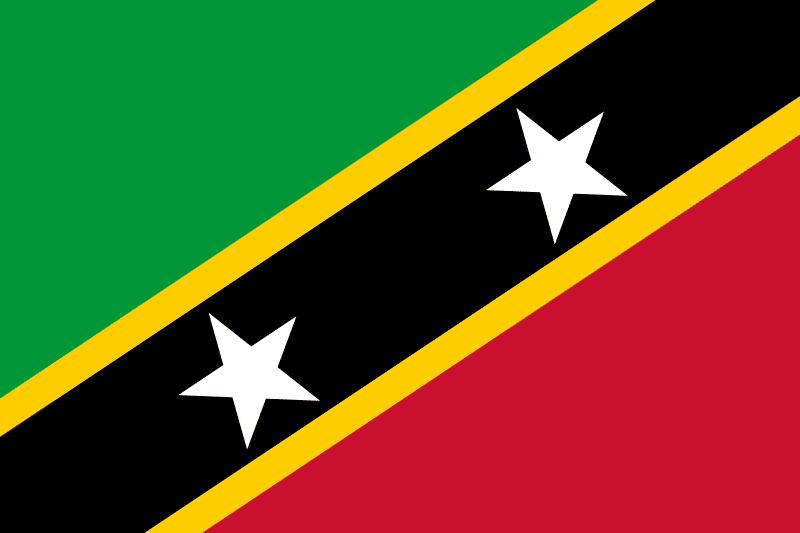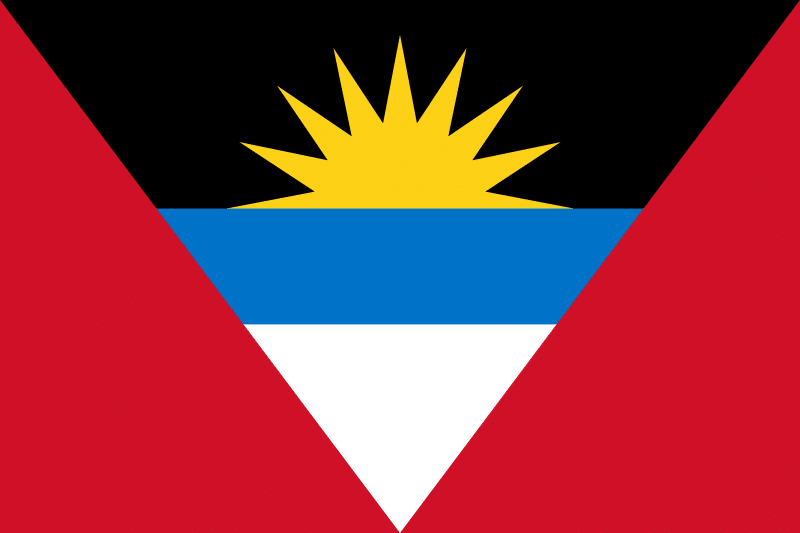The popularity of investment programs, also referred to as Golden Visas or Immigrant Investor Visas, has rapidly increased over the last few years. Many countries offer temporary residence permits, permanent residency status, and even citizenship to foreign investors who make financial contributions to their economies. As implied, two distinct schemes broadly classify investment programs: Residence by Investment and citizenship by investment programs.
These two avenues, though related, present separate routes to obtaining legal status in the host country, each of which may appeal to one set of immigrant investors over another. Whether you aspire to obtain dual citizenship status, acquire a second home abroad, increase your investment portfolio, political stability, or simply transfer your tax residency, it is essential to understand the differences between residence by Investment (RBI) and citizenship by Investment (CBI) programs.
This article will break down the intricacies of economic citizenship schemes, and foreign investment residency programs. It will explore their unique benefits, requirements, and implications, ultimately guiding you toward making an informed decision that aligns with your individual needs and priorities.
The Purpose of Residency by Investment and Citizenship by Investment Programs
Residency by investment (RBI) and citizenship by investment (CBI) programs are initiatives certain governments introduce to grant legal status to foreign nationals in exchange for a significant financial contribution or significant investment. These programs offer permanent, short, or long-term residency, or citizenship. The main purposes of these programs are as follows:
Improve economic growth
Citizenship and residency programs attract foreign capital and investment into the host country. These programs can stimulate economic growth, create job opportunities, and bolster the country’s financial stability by encouraging expats, business owners, and high-net-worth individuals to invest in real estate or other economic sectors.
Diversification of economy
Many countries with citizenship and residency programs look to diversify their economies beyond traditional sectors. By attracting overseas investors and entrepreneurs, these countries can develop new industries and reduce their dependence on specific sectors, leading to more sustainable economic growth.
Fiscal revenues
The substantial financial requirements associated with investment programs (citizenship in particular) often result in direct fiscal benefits for the host country. The income generated through investments, application fees, and other charges during the entire process can be used to finance public services, infrastructure development, and other governmental projects.
Global competitiveness
With the rise of globalization, governments with citizenship and residence programs seek to improve their global reputation and attract international attention. These nations can enhance their international reputation and diplomatic relations by offering residency or citizenship to investors along with family reunification.
Job creation and skills transfer
Many citizenship and residency programs require investors to start a business or conduct business that creates job opportunities for locals. This aspect of the agenda aims to stimulate job creation, transfer skills and knowledge, and encourage technology transfer, contributing to the country’s human capital development.
Demographic enhancement
Some countries with declining populations use economic citizenship programs to provide global citizenship to foreigners and rejuvenate their demographics. By allowing qualifying individuals to obtain citizenship, these nations can address issues related to aging populations and low birth rates.
The Differences Between Residency by Investment versus Citizenship by Investment Programs
While both programs require a significant financial investment, the below tables outline the differences in what is required and offered in residence by investment programs compared with CBI schemes.
Point of Distinction | Residency by Investment | Citizenship by Investment |
Minimum Investment | Residence programs typically have a broad range of investment amounts to obtain a residency permit. Investment requirements can start from an investment of just $5,000, depending on the country. | Investment citizenship programs generally require a more significant initial investment, with the cheapest program starting with an investment of $100,000. |
Availability | Given its temporary and non-binding nature, investment residence permits are more widely available, with most countries offering some form of investor or enterprise investment program. | Citizenship is a legal status that carries numerous legal implications and grants foreign investors a host of rights upon being granted citizenship. As such, fewer investment programs provide citizenship. There are currently 14 countries with citizenship by investment programs. |
Investment options | Real estate has been a common investment route for both residence and citizenship programs. Due to the broad array of investment thresholds, investments such as bank deposits and rental agreements also provide eligibility for residency by iInvestment in many countries. | Most CBI countries have real estate as an investment option; however, it generally revolves around a qualifying real estate purchase, with the lowest iInvestment being $200,000. A non-refundable contribution is also a common qualifying investment. |
Mobility | Put simply, residence visas provide residency in a second country. Immigration programs providing residency may extend mobility to other countries within a trading blog or coalition; however, most residency permit holders are restricted to residency in the country they invested in. | Citizenship by Investment comes with dual citizenship and a second passport, providing passport holders with expanded visa-free access and additional visa-free countries to travel to. |
Rights | Residency in a country provides limited rights and privileges. It is generally the right to legally reside in a country and enjoy certain benefits, such as access to local services and opportunities, without the full rights and responsibilities of citizenship. | Citizenship status unlocks the complete package of rights, including voting, running for public office, and the right to obtain passports. In several countries, it may offer the privilege of purchasing land and other types of real estate only reserved for citizen ownership. |
Residency versus Citizenship by Investment: Investment Comparison
CBI Programs
Country | Minimum Investment | No. of Investment Options | Investment Options | Required Investment Period |
Malta | €690,000 | One | Government contribution, real estate investment, and charitable donation | Five years |
St. Kitts and Nevis | $250,000 | Three | Shared or sole real estate purchase Sustainable Island State Contribution (formally the Sustainable Growth Fund) -Contribution to a Public Benefit Project | Five years (for real estate investment) |
Antigua and Barbuda | $100,000 | Four | Investment in an pre-approved real estate project Contribution to National Development Fund (NDF) Donation to University of the West Indies Fund Enterprise Investment | Five years (not applicable for cheapest investment option) |
Grenada | $150,000 | Two | Real estate purchase Contribution to National Transformation Fund (NTF) | Five years (not applicable for cheapest investment option) |
 St. Lucia | $100,000 | Three | Real estate purchase Contribution to National Economic Fund (NEF) Business Investment | Five years (not applicable for cheapest investment option) |
Dominica | $100,000 | Two | Real estate purchase Contribution to Economic Diversification Fund (EDF) | Three years (not applicable for cheapest investment option) |
Turkey | $400,000 | Five | Real estate purchase Bank account deposit into a national bank Purchase government bonds Capital investment in real estate or venture capital investment fund Establish a new enterprise and create jobs | Three years |
 Vanuatu | $130,000 | One | Government contribution | Not applicable |
RBI programs
Country | Minimum Investment | No. of Investment Options | Investment Options | Required Investment Period |
Portugal | €250,000 | Four | Investment in an investment fund or other investment structures Share capital in an existing enterprise that creates jobs Donation to scientific or technological research Donation to artistic production, reconstruction of national heritage, or cultural infrastructure projects | Five years |
Spain | €500,000 | Five | Real estate investment Investment in public debt securities, -Stocks/shares purchase Bank deposit into a national bank Business investment that creates jobs | Five years |
Cyprus | €300,000 and bank deposit of €30,000 | Three | Real estate investment Share capital of a company Invest in units of a Collective Investment Organization | Five years |
 Greece | €250,000 | Five | Real estate investment Investment in public debt securities Bank deposit into a national bank, Investment in an approved fund Investment in corporate shares, treasury or corporate bonds | Indefinitely to renew the visa |
Italy | €250,000 | Four | Purchase government bonds Purchase corporate bonds or shares Establish an innovative startup that creates jobs Charitable donation | Five years |
 United States | $800,000 | One | Establish an enterprise that creates jobs | After the removal of conditional residency status (usually three to four years) |
 Canada | Not applicable | One | Establish an innovative business that creates jobs | No minimum investment period stated |
 United Kingdom | Not applicable | One | Investment in share capital or loan capital in actively trading UK companies | Three years |
Residency versus Citizenship by Investment: Details and Terms
CBI programs
Country | Legal Status | Requires Renewal | Stay Requirement | Processing time | Ease of Process | Link to Ultimate Guide |
Malta | Citizen by naturalization | No | No | 12 or 36 months | Medium | |
 St. Kitts and Nevis | Citizen by Investment | No | No | Four months | Easy | |
 Antigua and Barbuda | Citizen by Investment | No | Five days within five years | Three to six months | Easy | |
 Grenada | Citizen by Investment | No | No | Three to six months | Easy | |
 St. Lucia | Citizen by Investment | No | No | Three to six months | Easy | |
Dominica | Citizen by Investment | No | No | Three to six months | Easy | |
Turkey | Citizen by Investment | No | No | Three to four months | Easy | |
 Vanuatu | Citizen by Investment | No | No | Two months | Easy |
RBI Programs
Country | Legal Status | Requires Renewal | Stay Requirement | Processing time | Ease of Process | Link to Ultimate Guide |
Portugal | Renewable residence permit | Every two years (eligible for permanent residence after five years) | Seven days per year | Three to six months | Medium | |
Spain | Renewal residence permit | Initially valid for one year, renewal every two or three years thereafter (eligible for permanent residence after five years) | Travel to Spain every three months or eight times in total, within a two-year period | 20 to 30 days | Medium | |
Cyprus | Permanent residence | None | Visit once every 24 months | Two months | Easy | |
Malta | Renewable permanent residence permit | Every five years | None | 11 to 12 months | Medium | |
 Greece | Renewable permanent residence permit | Every five years | None | Six to eight weeks | Easy | |
Italy | Renewable residence permit | Initially valid for two years, renewal every three years thereafter (eligible for permanent residence after five years) | None | Three to six months | Medium | |
 United States | Conditional permanent residence | Apply to remove conditional status after two years | No more than 12 months stay outside the country (two years with re-entry permit) | 18 to 36 months | Hard | |
 Canada | Permanent residence permit | None | 730 days in every five-year period | 12 to 16 months | Hard | |
 United Kingdom | Renewable residence permit | Every three years (eligible to apply for Indefinite Leave to Remain after three years) | No more than two years stay outside the country | Eight weeks (after receiving Letter of Support from endorsing body) | Hard |
Which citizenship by investment program is right for me?
Having a second passport through foreign direct investment opens up a world of opportunities. It offers individuals and their family members the lifelong benefit of having extended options for living, traveling, working, and investing, which may include asset protection and reducing tax obligations.
Questions you should ask when considering citizenship by investment are:
- Am I looking for a “Plan B?”
- Will obtaining citizenship improve my quality of life?
- Can dual citizenship be extended to my family members?
- Which countries offer CBI, and am I comfortable with their culture and way of life?
- What are the long-term benefits and drawbacks of CBI?
- Will citizenship increase my income tax or levy inheritance tax?
- Will the Caribbean or Golden passport unlock additional visa-free countries?
- How stable is the economic and political environment?
We understand the importance of picking the right residency permit or citizenship program for you and your family, and our comparison tables offer useful information on each citizenship and residency by investment scheme. For a more detailed CBI comparison, refer to our Citizenship by Investment Comparison Guide.
What residency by investment program is right for me?
There are many reasons to invest in permanent residency. Residency by investment opens doors for individuals and their family members to live, work, study, and access healthcare in a particular country. It also allows increased global mobility worldwide, without the extra commitment of becoming a citizen.

- Should I make a short or long-term investment?
- Am I looking for temporary or permanent residency?
- Are there stay requirements to maintain temporary or permanent residence cards?
- Does a residence card offer visa-free travel to other countries?
- When can I retrieve my investment funds?
- Will I be required to pay taxes after obtaining a residence card?
- How stable is the economic and political environment?
- How long until I’m eligible for citizenship by naturalization
Picking the right investment migration program for you and your family is difficult, so we created a comparison table listing some of our most popular Golden Visas and other residency by investment visas. For additional information on residency by investment programs, explore our article: Residence by Investment – Unleash Your Global Potential.
How Can Global Citizen Solutions Help You?
Global Citizen Solutions is a boutique migration consultancy firm with years of experience delivering bespoke residence and citizenship by investment solutions for international families. With offices worldwide and an experienced, hands-on team, we have helped hundreds of clients worldwide acquire citizenship, residence visas, or homes while diversifying their portfolios with robust investments.
We guide you from start to finish, taking you beyond your citizenship or residency by investment application.

Frequently Asked Questions about Residence by Investment versus Citizenship by Investment Programs
What is the difference between permanent residency and citizenship in Portugal?
The distinction between permanent residency and citizenship in Portugal lies in the level of legal status and privileges granted to individuals. For example, Portuguese permanent residency acquired through the Portuguese Golden Visa program allows foreign nationals to live and work in Portugal indefinitely after renewing their residence card and fulfilling the required minimum residence period of five years.
With permanent residency, individuals gain access to most social services, healthcare, and education but do not have voting rights in national elections and cannot hold a Portuguese passport. On the other hand, Portuguese citizenship grants rights in the country, allowing individuals to vote, participate in political elections, and obtain Portuguese passports, ensuring complete integration and mobility within the European Union.
With EU citizenship, Portuguese nationals gain the privilege to reside in any EU member state and access the rights and entitlements granted to the country’s citizens.
Is residency better than citizenship?
Whether residency or citizenship is better depends on your specific needs, goals, and circumstances. A residence card can be favorable for those seeking temporary living arrangements or investment opportunities in a foreign country. On the other hand, citizenship may be the preferred option for those pursuing comprehensive rights, such as enhanced global mobility through visa-free access, long-term stability, full integration into the social fabric, and the benefit of second citizenship for their family members.
Is it better to be a permanent resident or a citizen?
Choosing between a permanent residence card and citizenship depends on your long-term goals and intentions. With American citizenship, individuals enjoy the freedom to travel in and out of the United States without limitations or the need to fulfill re-entry preparations. In contrast, a US Green Card holder must apply for a re-entry permit for absences or more than 12 months outside the country.
It would be best to consider your investment choices, how dual citizenship will affect you and your family members, and the long-term implications and benefits both paths will have on your personal and financial goals.
How many years of residence before citizenship?
The number of years of residence required before being eligible for citizenship varies from country to country. There is no standardized international law for residency requirements to obtain citizenship. Each country has its own citizenship laws and naturalization requirements, outlining the conditions temporary and permanent residents must meet to become a global citizen. In general, the period of residency required can range from several years to more than a decade.
CBI excludes the residency requirement, and countries grant citizenship in just the time it takes the process the citizenship application and complete due diligence checks. Turkey grants Turkish citizenship by investment within four months, while you can gain Caribbean citizenship in as little as two months; The St. Kitts and Nevis citizenship by investment program has a two-month day processing time for successful applicants acquiring citizenship through the Accelerated Applicant Process (AAP)
What is the difference between citizenship and immigration status?
Citizenship refers to legal membership in a country. It is the highest legal status in a nation, granting certain fundamental rights and responsibilities, such as the right to vote, work, reside permanently, and access various government services.
Immigration status, on the other hand, refers to the specific legal category that determines an individual’s permission to be in a country for a certain period for specific purposes. Immigration status can vary depending on factors such as the purpose of the person’s stay, their country of origin, the type of visa they hold, and the specific immigration laws of the respective country.
What is the cheapest permanent residency in Europe?
The Malta Permanent Residence Program (MPRP) is the cheapest residency program providing permanent residency. An immigrant investor can become a permanent resident by investing at least €110,000. Malta also offers fast-track citizenship. Investors can become naturalized citizens with an investment of at least €690,000. The entire application process takes 12 to 36 months, depending on the investment.
